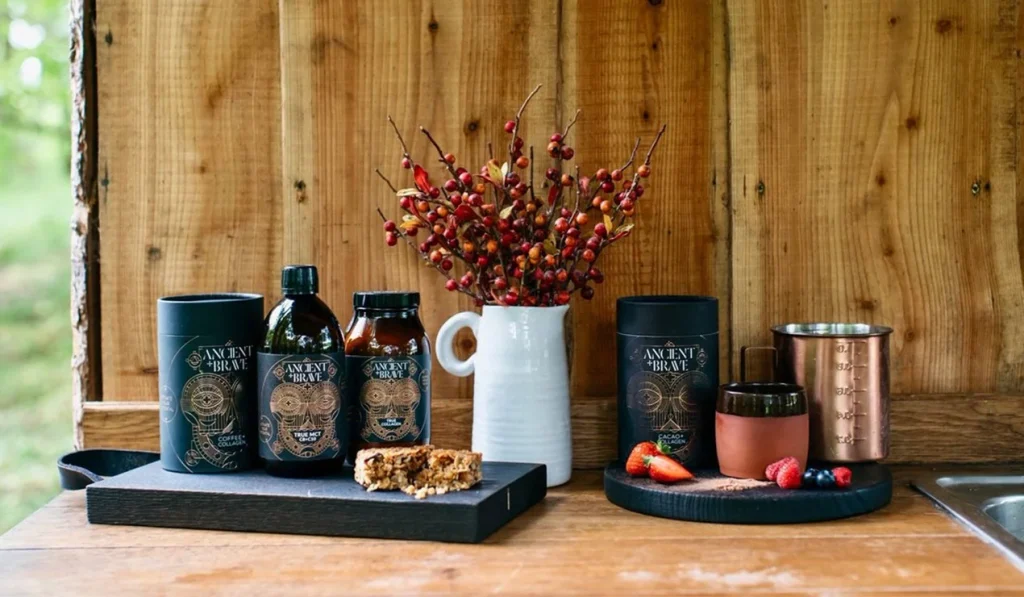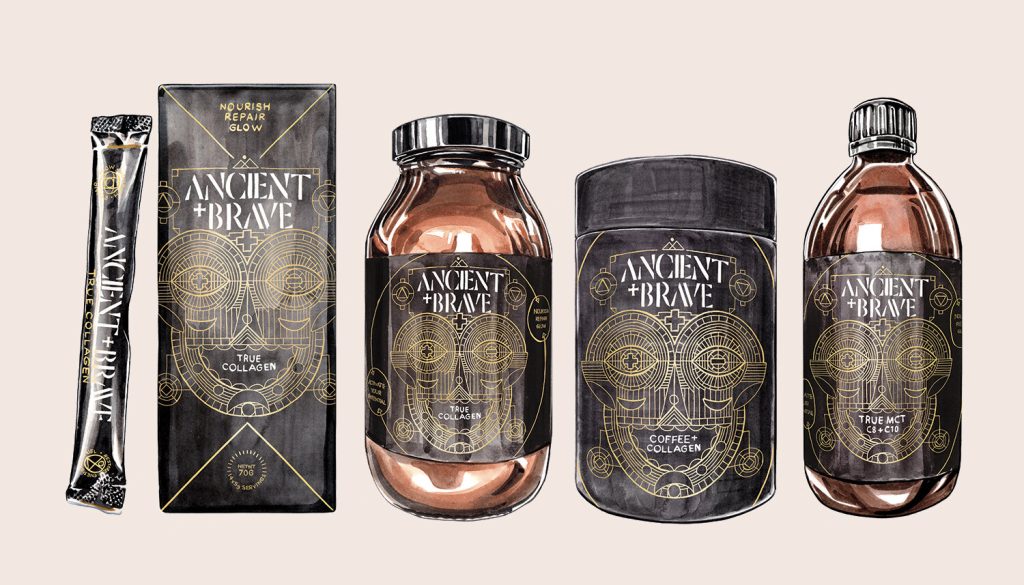In just two years, UK-based wellness brand Ancient + Brave has experienced a dramatic leap in growth — from £1 million in annual turnover in 2022 to £20 million in 2024. With plans for a US launch and a laser focus on subscription-driven e-commerce, the company is proving that success in the hyper-competitive wellness market hinges on product integrity, operational resilience, and ruthless customer-centricity.
At the heart of this transformation is a shift in leadership, infrastructure, and strategic thinking — all designed to meet the fast-rising global demand for its nutritional supplements, including collagen powders, magnesium blends, creatine, and adaptogens like ashwagandha.
As CFO, I can look at cheaper ways of doing things that would make the product more profitable. But if you disappoint the customer in one way, then suddenly you find you’ve lost them. And that can very quickly multiply.
Carl Moore

From Startup to Scale-Up: The Numbers Behind the Surge
Founded in 2018, Ancient + Brave spent its first few years quietly carving out a niche in the premium health and supplements market. Sales grew steadily — until late 2022, when everything changed. In the span of a few months, monthly revenue surged from just under £100,000 to almost £1 million. By the end of 2023, the business hit £10 million in revenue. Just one year later, that number doubled.
Today, more than 90% of the company’s revenue comes from B2C e-commerce, with Shopify and Amazon as the primary sales channels. This isn’t a brand reliant on high-street retail or slow-moving distribution deals — it’s a digital-first operation built for speed, repeat custom, and global scale.
Strengthening the C-Suite to Support Scale
As growth accelerated, Ancient + Brave moved quickly to professionalize its operations. In early 2024, the company installed a brand-new executive team, recruiting a Chief Marketing Officer, Chief Digital Officer, Chief Retail Officer, Chief Operating Officer — and, in February, CFO Carl Moore, a chartered accountant and former ICAEW member with a strong background in growth-stage consumer businesses.
Moore arrived just as a new Priority ERP system was going live — a project that, while essential for scaling, brought its own complexities. “It’s not just about having enough stock,” Moore explains, “it’s about having the right products, in the right quantities, in the right warehouse — and in the right language packaging for the right market.”
Operational Complexity: Forecasting, Stock, and International Growth
Ancient + Brave’s products — particularly its collagen range — are built around subscriptions, which provide a dependable source of recurring revenue. But that also makes the operation far more sensitive to spikes in demand.
“When subscriptions ramp up unexpectedly, our stock cover can vanish overnight,” Moore says. “Lead times on production are relatively long, and although shelf life isn’t an issue, logistics definitely is.”
To manage this, the company now operates across three regions with multiple fulfilment partners: a third-party logistics (3PL) partner in the US (where a launch is planned for July), another 3PL in the EU, and both 3PL and in-house warehousing in the UK.
“Each region needs its own inventory strategy, supply chain logic, and system integration — and all of that has to be managed centrally but executed locally,” Moore adds.
Data-Led Growth

With tens of thousands of subscribers and multiple product lines, Moore’s team relies heavily on data to make decisions, but not all data is created equal.
“Just because revenue is going up doesn’t mean the customer metrics are healthy,” Moore says. “If our churn rate ticks up, or subscriber retention dips in month two or three, we need to know why.”
Even positive signals — like reduced customer acquisition cost (CAC) — demand scrutiny. “If CAC is dropping, is it because of campaign performance, seasonality, organic word-of-mouth, or something else entirely?”
To navigate these nuances, Moore’s lean in-house finance team — a controller, a management accountant, and an assistant — works closely with digital analysts embedded in the growth and e-commerce teams. The company also brings in third-party consultants for external benchmarking, comparing internal KPIs against broader market trends without relying on competitor data directly.
Cybersecurity and Systems
Given that the company’s revenue is overwhelmingly digital, Moore also oversees IT and cybersecurity — two areas that have grown in importance as the company scales.
“Cyber Essentials is a good baseline,” Moore says, “but it’s really about protecting people — not just systems. Most breaches start with a human mistake.”
At times, we have made fulfilling demand more challenging with additional red lines around our sourcing requirements, but that refusal to compromise on quality is part of what has made the business successful
Carl Moore
Despite the scale, Moore is clear: growth should never come at the expense of product integrity.
“All of our bovine collagen comes from EU farms, free from hormones and antibiotics. Our marine collagen is MSC-certified, sustainably sourced,” Moore says. “That makes procurement harder, but we refuse to compromise. It’s part of what has built customer trust.”
This uncompromising stance even affects how quickly they can fulfil demand. “There have been moments when we’ve slowed down fulfilment or delayed restocks because the supplier couldn’t meet our ethical standards. But that’s the line in the sand.”
A relentless focus on customer service underpins every part of the business — and Moore believes this is where many fast-growth companies stumble.
“It’s easy to get lost in dashboards, churn graphs, and margin models. But if the customer experience slips, none of that matters,” he says.
As CFO, Moore admits he’s sometimes tempted to make cost-saving decisions — but always with caution. “Just because it improves our gross margin doesn’t mean it’s worth it if we disappoint a customer. That short-term gain can unravel everything.”
Ancient + Brave spends more than £500,000 a month on pay-per-click (PPC) advertising, but Moore says the most important period is the first 60 to 90 days of a new subscriber’s journey.
“Our products take time to show benefits. If someone gives up before month three, they may never come back — even if the product is great. Educating customers, managing expectations, and building trust from day one is critical.”






